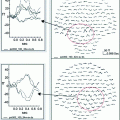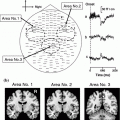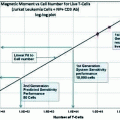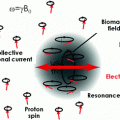© Springer-Verlag Berlin Heidelberg 2014
Selma Supek and Cheryl J. Aine (eds.)Magnetoencephalography10.1007/978-3-642-33045-2_35Organizational Neuroscience: A New Frontier for Magnetoencephalography?
(1)
Oxford Centre for Human Brain Activity, University of Oxford, Oxford, OX3 7JX, UK
Abstract
Organizational neuroscience is an emerging field of research aimed at the neuro-scientific study of human behavior in organizations. The purpose of this short chapter is to provide a brief overview of the field and to make an informed guess about the role magnetoencephalography might play by exploiting the strengths of this technology. Also, some of the broader conceptual challenges and ethical considerations are touched upon that have been raised by recent neuro-technologies and that will most likely be relevant to organizational neuroscience as well.
Keywords
Organizational neuroscienceNeuroeconomicsNeuromarketingMagnetoencephalographyDecision making1 Introduction
Organizational neuroscience, ON for short, is an emerging, highly interdisciplinary area of research that explores the implications of brain science for workplace behavior. ON builds on key theories and methods of behavioral, cognitive, and social psychology and attempts to incorporate advances in neuroscience that have failed to reach organizational and/or business research as yet. The broad aim is a better understanding, explanation and prediction of human behavior in organizational relevant situations, which might ultimately provide evidence-based recommendations for practice. It is hoped that neuroscience methodology will help to push organizational research in exciting new directions such as how and why managers make appropriate decisions or how serial entrepreneurs might perceive and act upon risk differently than others (Becker et al. 2011; Senior et al. 2011; Lee et al. 2012).
As an area of research, ON is distinct from but nevertheless related to two established neuro-technologies, namely neuroeconomics and neuromarketing. The former combines neuroscience, psychology and economics for the study of how people evaluate gains, losses and rewards in economic decision-making (Camerer 2008). The latter specifically adopts imaging tools to investigate customer choices for marketing purposes such as TV commercials (Ariely and Berns 2010). Note some protagonists refer to OCN (organizational cognitive neuroscience) in order to emphasize the role of cognitive processes, however, this distinction is not made in this paper.
2 A Role for MEG
From a neurophysiological perspective, organizational researchers are intrigued by the superior temporal resolution of MEG, which, in conjunction with powerful source estimation approaches, allows the detailed mapping of brain activity associated with complex cognitive processes. In particular, rapid responses that occur at the edge between perception and cognition are deemed powerful markers in the quest for better models of decision-making and judgment under uncertainty (Senior et al. 2011). As an illustrative example taken from the neuroeconomics literature, a recent study utilized MEG to study the neural mechanisms associated with buying decisions that have potentially long-term consequences (Hedgcock et al. 2010).
In a real estate scenario, the subjects were given the choice to buy an expensive apartment (high monthly mortgage) located in a safe neighborhood or to buy a cheap apartment located in a less safe area with a modest crime rate. The authors found that neural responses over frontal and parietal cortices correlated with trial outcome as early as a 500 ms after presentation of choice options, and several seconds before the buying decision was communicated. The significance of such early neuronal activity is currently unresolved, as to what processes may be occurring during the time between divergence of neuronal response and the decision. These neuronal responses, however, appear to reflect higher-order cognitive processes outside awareness, raising the possibility that economically relevant behavior is, to some extent, decided upon long before it becomes manifest. If so, a deeper understanding of these neuronal systems might yield insight into why individuals often seem unaware of the relative importance of different choice attributes that affect their perceptions regarding the attractiveness of their choice options (Dhar and Simonson 2003; Braeutigam 2012).
Stay updated, free articles. Join our Telegram channel

Full access? Get Clinical Tree







